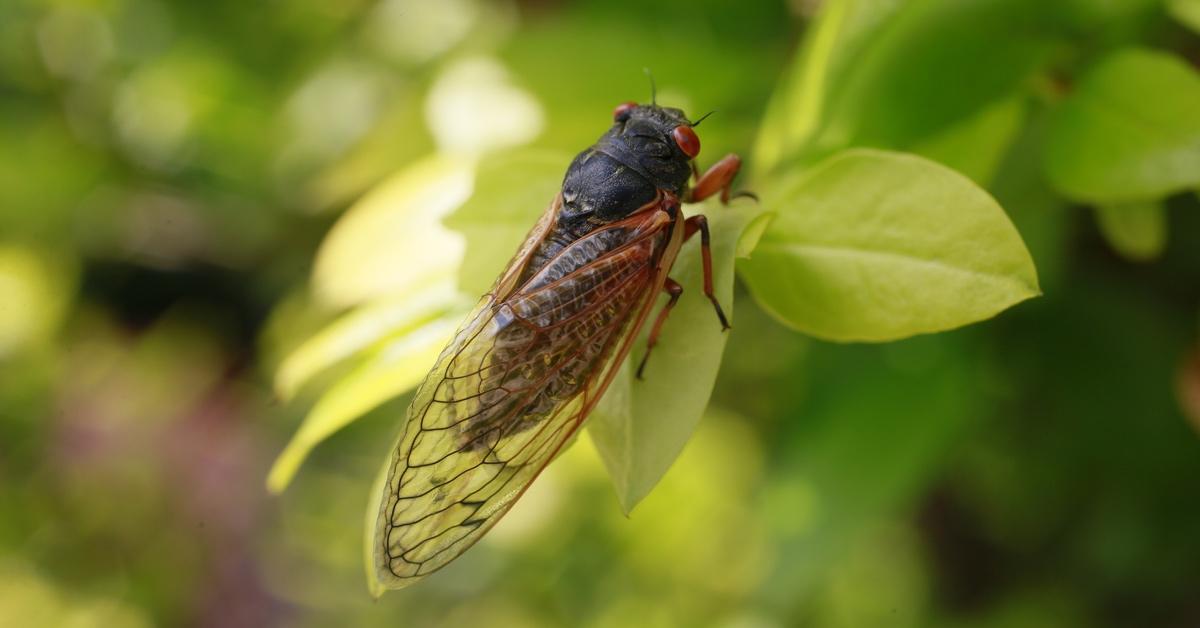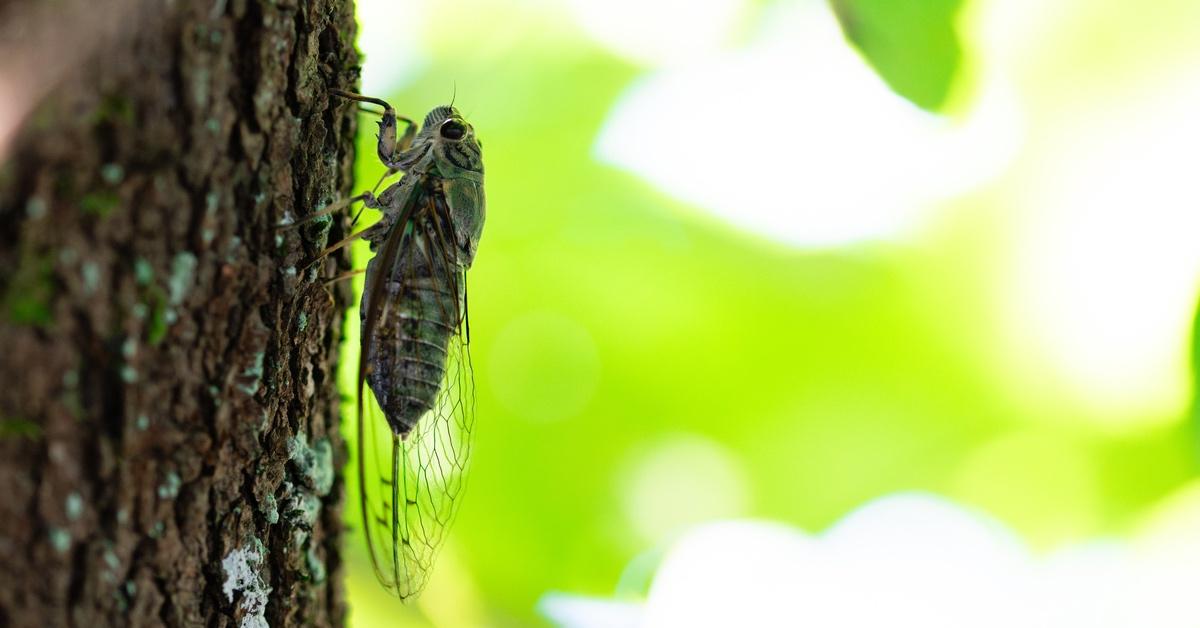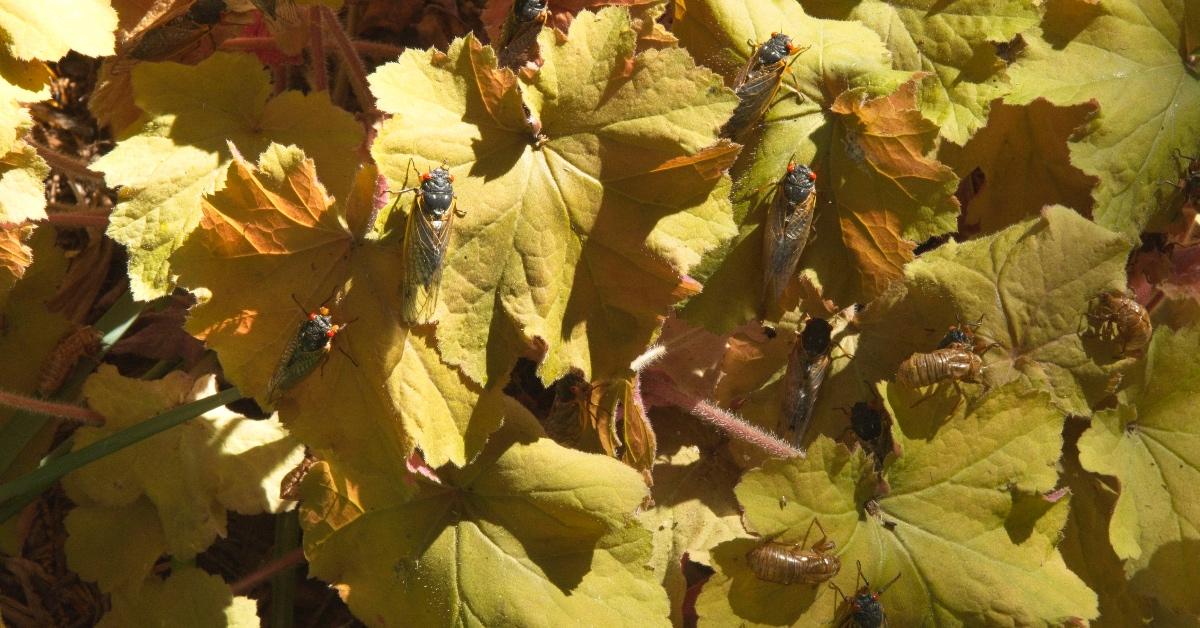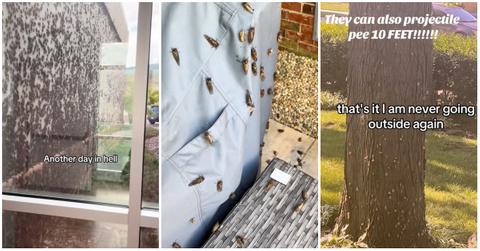The Two Cicada Broods Have Emerged in 2024 and People Are Taken Aback
In a rare twist, two broods of cicadas emerge from the ground during the spring and summer of 2024.
Published Jan. 22 2024, 12:34 p.m. ET
Although cicadas live on every continent except Antarctica, chances are you've encountered periodic cicadas, especially if you reside in North America. These insects typically emerge around late April to early May in a cycle that is 13 or 17 years, per Live Science. Their signature loud buzzing and veined, transparent wings make them easily identifiable in the trees, on the ground, or just about anywhere you step.
In 2024, two different broods of cicadas have emerged, sending billions to the surface for the first time since 1803. Cicadas are an important source of nutrition for many animals in the ecosystem, but their presence can be a nuisance to humans.
Here's everything you need to know about the extraordinary cicada emergence in 2024, explained.

In 2024, billions of cicadas are emerging from the earth.
What makes the cicadas in 2024 a rare event is the simultaneous emergence of two different broods — Brood XIX and Brood XIII. According to NPR, the last time two broods emerged at the same time was 1803.
According to entomologist Floyd Shockley via NPR, Brood XIX, better known as the "Northern Illinois Brood," emerges every 17 years and contains three different cicada species. This brood began to emerge in mid-May and will remain until late June in four states: Illinois, Indiana, Wisconsin, and some of Michigan.
Brood XIII, better known as the "Great Southern Brood," emerges every 13 years and contains four different cicada species. This brood began to appear in late April through mid-May across 15 states, including Virginia, Mississippi, and Alabama, explains Shockley.
According to NBC News, the next time the cicadas sync up their emergences will be in 221 years!

What does the cicada life cycle look like?
According to Arizona State University, the cicada life cycle begins when female cicadas lay eggs inside tree branches. Then, six to eight weeks later, the nymphs hatch and fall into the ground. The nymphs have legs for digging, which they do to remain close to plant roots for nutrition. There are five stages of nymph life, culminating when they burrow out of the ground and climb trees or plants.
Once a cicada nymph sheds its exoskeleton in an "ecdysis" process, it reaches adulthood and begins looking for mates.
The loud buzzing noise humans typically hear from cicadas is a mating call. When many adult cicadas emerge from the ground together, the sound becomes louder — sometimes as loud as a jet, per Science.
After mating, the female cicada lays her eggs and dies. Thus, the life cycle begins again.

Are cicadas dangerous to humans or pets?
Thankfully, cicadas do not bite or sting and are not harmful to humans. Although there might be many cicadas with which to contend, the worst you may have to deal with is your furry friend trying to eat them.
If your pet does manage to eat a cicada, according to the American Kennel Club (AKC), they might develop an upset stomach, so it's important to avoid them chowing down on these insects.
The AKC's Chief Veterinary Officer, Dr. Jerry Klein, advises, "In most cases, your dog will be fine after eating a few cicadas. However, dogs that gorge on the large, crunchy insects will find the exoskeleton difficult to digest and can suffer serious consequences."
The best solution is to get your pup or cat familiar with the "leave it" command and keep a watchful eye when taking your beloved animal out for walks.
